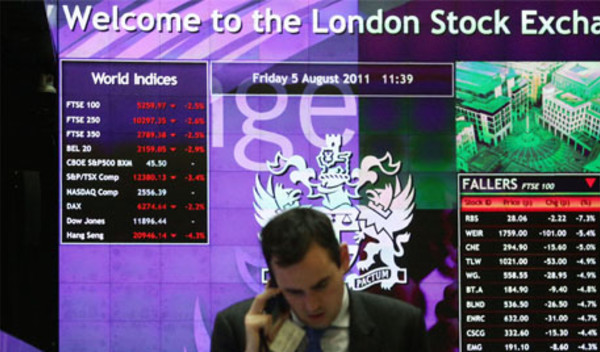

It looked like the US and China would quickly agree to some sort of trade deal, but that quickly disappeared.
The UK was close to getting Brexit resolved but hopes there were dashed.
As we approach the end of 2019 both issues remain unresolved, but markets again see light at the end of the tunnel.
However, in spite of the limited progress made on some significant geopolitical issues, by most measures 2019 was a good year for investors.
Most major asset classes delivered impressive double-digit returns and they were not solely down to the weakness of the currency. Investors made money whether they were in defensive assets such as bonds or gold, but also in equities.
The reason for this was driven by a slowdown in global growth attributed primarily to the US-Chinese trade war.
Exporting countries such as Germany and Japan were the most affected.
The US Treasury yield curve inverted as investors begun to price in a lower growth and further interest rate cuts.
The US, having previously been raising interest rates, reversed that policy and began to cut rates quickly.
The European Central Bank also cut rates (further into negative territory). Due to these actions, investors were happy to buy government, and occasionally corporate, bonds at negative yields.
A world where you pay someone to lend them money is not normal, but given the level of government debt, it makes some (not much) sense.
The gold price, having been stable for a while, started to rise as fears of a global recession loomed, and although it has held onto some of those gains it quickly gave up most.
However, the actions of central banks were both quick and decisive and the consumer, particularly in the US, remained strong, supporting growth.
Economic data remained mixed and investors recalled that a negative yield curve, while historically a fair indicator of recession is not 100 per cent accurate and indeed not great on timing.
In the UK, Brexit trundled on, depressing every one as parliament and the government tied itself in knots.
For much of the year the UK was the most unloved market amongst global investors.
To make matters worse, the UK’s lauded fund manager Neil Woodford became embroiled in a scandal. His funds were suspended, then closed and the business collapsed.
It is shocking to think that what was seen as a core UK Equity Income fund could suffer liquidity issues in normal market conditions.
Mr Woodford made many mistakes and there are lessons we all need to learn, but this should act as a reminder that the market can remain irrational (well of a different view) far longer than we as investors can remain solvent.
There is little to be gained in being right if you cannot stomach the journey. Investors’ appetite for risk changes all the time but patience with Mr Woodford finally ran out.
The announcement of a general election in the UK helped revive global interest.
The UK rose from being the most unloved market to the 4th most unloved as the polls initially indicated a large Conservative majority, which was positively received by investors as it could unlock parliament and avoid a Corbyn government which, following publication of his manifesto, was seen by some as more damaging than a no-deal Brexit.
The same issues concern investors now as they did at the start of the year, except markets are bit more expensive.
Adrian Lowcock is head of personal investing at Willis Owen
This column was first published in Financial Adviser before the general election




